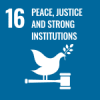UGM Epidemiologist, dr. Riris Andono Ahmad revealed that increasing community mobility could increase the transmission of Covid-19, as has happened in several holiday moments in Indonesia.
It indicates the potential for increased transmission if the Regional Head Election (PILKADA) is held when the Covid-19 pandemic cannot be controlled. According to him, if the PILKADA is still held, it is necessary to make several adaptations, one of which is in the management of voting.
“We need to increase the number of polling stations and train election officers. They must be able and willing to refuse if there are voters who violate health protocols and strictly regulate the voting time,” he said.
He conveyed the statement in the 2020 PILKADA Webinar Series entitled “Guarantee Voting Rights and Voter Participation” organized by Berita Satu with the Faculty of Social and Political Sciences (FISIPOL) UGM on Tuesday (3/11).
Riris explained the experience of several countries in holding legislative or executive elections during the pandemic. According to him, many countries were able to control the pandemic, judging by the absence of a significant increase in the number of post-election transmissions. However, in several countries, Covid-19 cases have seen a sharp spike.
One of the cases he mentioned was Malaysia, which besides Vietnam, was one of the countries in Southeast Asia that were considered quite successful in controlling the transmission rate before the election, which took place on September 26. However, after the campaign and election period, there was a significant increase in cases.
It is a warning for Indonesia which will hold elections while controlling the transmission rate has not been successful.
“When carried out in countries that have been very effective in controlling, election events can increase transmission to a much greater extent,” he said.
From this experience, he revealed two critical points of the holding of PILKADA in Indonesia, namely traditional campaigns that would cause crowds, as well as disinformation that would increase public distrust.
On the same occasion, UGM political and government expert, Mada Sukmajati, revealed that feelings of unrest and rejection colored the discussion regarding the 2020 PILKADA plan on social media.
From the results of the Polgov analysis, in the period from March to October 2020 there were 52,734 tweets on the topic of postponing elections. In addition, several survey institutions noted that most respondents disagreed with the holding of the 2020 Simultaneous PILKADA and chose the option of delaying the PILKADA.
This, he said, adds to the complexity of issues related to elections in Indonesia, especially regarding participation rates and problems that always arise from year to year.
“Besides contestation, participation is the main element in the election,” said Mada.
Election organizers, he explained, need to continue to convince the public that they have optimally enforced health protocols at every stage.
He added that the 2020 elections must be healthy in all aspects, both in terms of health and political aspects, in terms of process and results.
“We must be aware that in the political context, elections are not always healthy. It is a momentum to support healthy elections, including in a political sense,” he said.
Source: https://ugm.ac.id/id/berita/20296-perlu-adaptasi-manajemen-pencoblosan-untuk-pilkada-di-masa-pandemi



